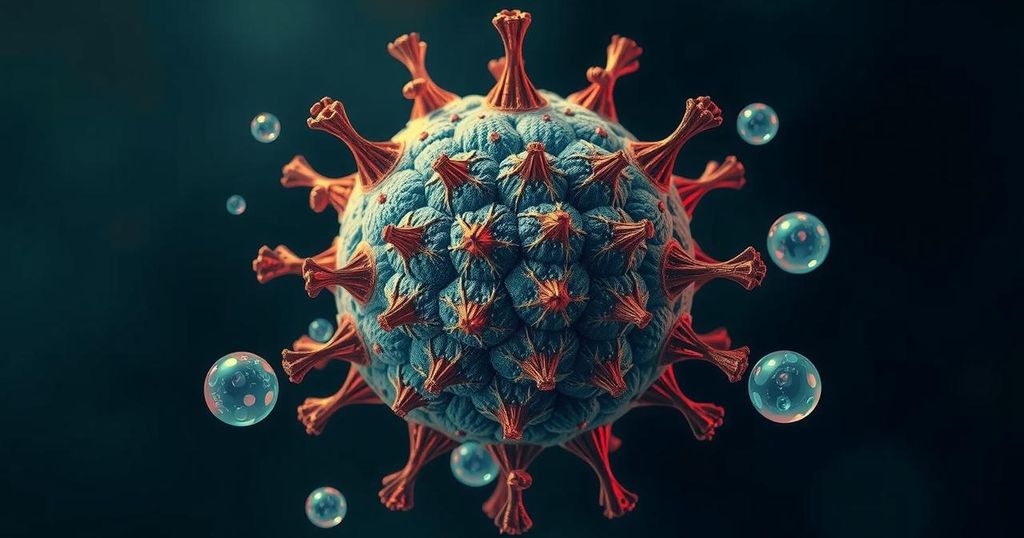Climate change
AMERICAS, CLIMATE CHANGE, HEALTH ORGANIZATION, INTERGOVERN, INTERGOVERNMENTAL PANEL ON CLIMATE CHANGE, INTERNATIONAL COOPERATION, INTERNATIONAL MONETARY FUND, LATIN AMERICA, OXFAM, PA, PAHO, PAN AMERICAN HEALTH ORGANIZATION, PARIS AGREEMENT, PUBLIC HEALTH, SOUTH AMERICA, UNITED NATIONS
Marcus Li
0 Comments
New PAHO Policy Urges Urgent Action on Health and Climate Change for Vulnerable Populations
The Pan American Health Organization has initiated a new policy aimed at addressing health disparities exacerbated by climate change. The policy focuses on enhancing health sector capabilities for climate adaptation and securing financial resources for vulnerable communities. With a significant emphasis on equity, it addresses the differentiated impacts of climate change, particularly on marginalized groups, and underscores the urgent need for action.
The Pan American Health Organization (PAHO) has recently enacted a pivotal policy addressing the interconnectivity between health, the evolving climate, and issues of equity affecting various populations. The newly approved guidelines specifically aim to enhance the health sector’s capacity for adapting to climate changes while simultaneously mitigating health disparities. A particular emphasis is placed on securing funding targeted at adaptation efforts, especially for vulnerable communities. PAHO articulated that the adverse effects attributed to climate change are not uniformly distributed among the population; rather, they vary significantly based on socio-economic status, ethnicity, age, disability, migration status, gender, and geographic location. It highlighted the heightened risk faced by Indigenous Peoples and distinct ethnic groups, who are closely tied to their natural environments. According to PAHO, the Americas represent one of the regions most susceptible to climate change impacts, exposing the populace to extreme climate occurrences, economic dependencies on climate-sensitive industries, and stark social inequalities. From the years 2000 to 2013, Latin America experienced 613 drastic climate phenomena, including hurricanes, floods, and heat waves, which collectively resulted in over 13,000 fatalities and economic damages exceeding $52 billion. Furthermore, there has been a staggering 160% rise in heat-related mortalities in South America over the past two decades, accompanied by a surge in diseases carried by mosquitoes, such as dengue and malaria. Efforts to combat climate-related health inequities have garnered attention not only from PAHO but also from respected international bodies such as Oxfam, the United Nations, and the International Monetary Fund. Various organizations are working to empower underserved communities with access to clean energy solutions aimed at both cost-saving and contributing to the reduction of global temperature increases. Native Renewables is one notable organization that aids Native American households in the American Southwest by facilitating access to affordable solar power, fostering energy independence. Additionally, Michigan has allocated substantial funding towards climate initiatives, including programs intended to assist low-income families with solar energy access. Gerry Eijkemans, the director of the Department of Social and Environmental Determinants for Health Equity, emphasized, “Climate change threatens to worsen existing health inequities, disproportionately affecting populations and territories in vulnerable situations. The health sector must take immediate and decisive action on climate change and health, with specific efforts to integrate equity in adaptation and mitigation measures.” This comprehensive policy proposal signals an urgent call to action for health sectors across the Americas to address these pressing climate challenges with a focus on equity and sustainability.
The new policy from PAHO emerges against a backdrop of increasing recognition of the link between climate change and health, particularly how various demographic and socio-economic factors can amplify vulnerabilities. There is a growing body of evidence suggesting that climate change disproportionately affects marginalized populations, intensifying health disparities. The complexity of these interactions has captured the attention of global health and environmental organizations, underscoring the need for strategic interventions aimed at promoting health equity amid climate chaos. The Americas, with their diverse population and geography, present unique challenges and opportunities for implementing these frameworks effectively.
In conclusion, the recent policy adopted by the Pan American Health Organization marks a significant step towards addressing the multifaceted challenges posed by climate change on human health, emphasizing the need for equity-focused strategies. It recognizes the differential impact of climate adversity on vulnerable populations and calls for substantial action from the health sector. The implications of this policy are far-reaching, not just for health outcomes but for broader social justice in the face of climate change.
Original Source: www.thecooldown.com




Post Comment